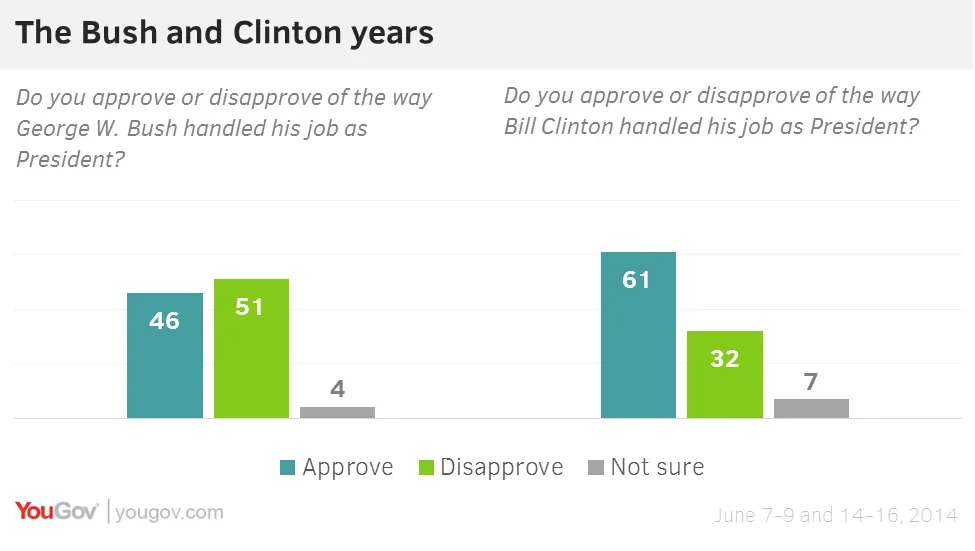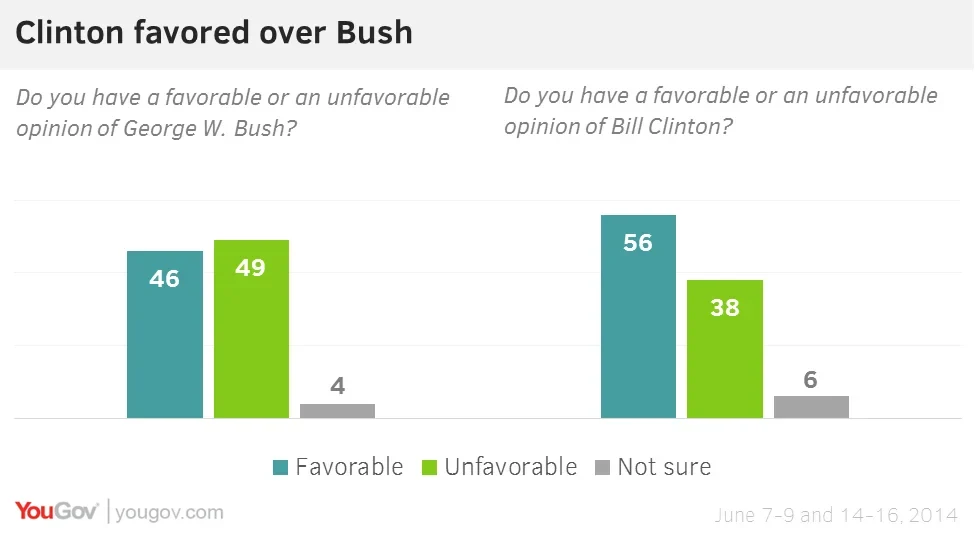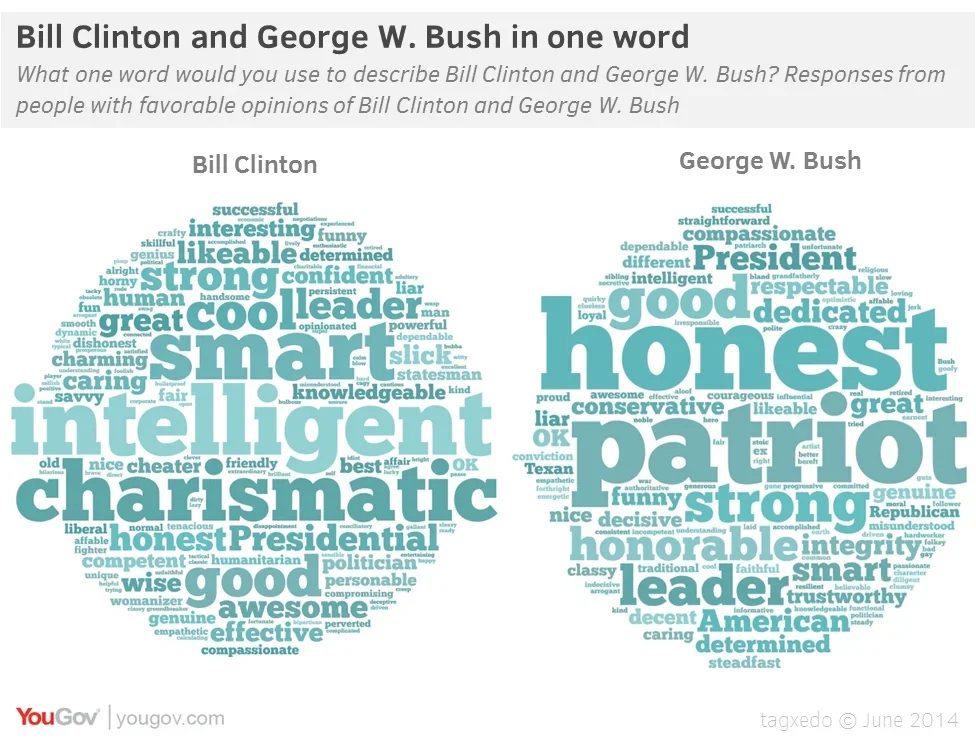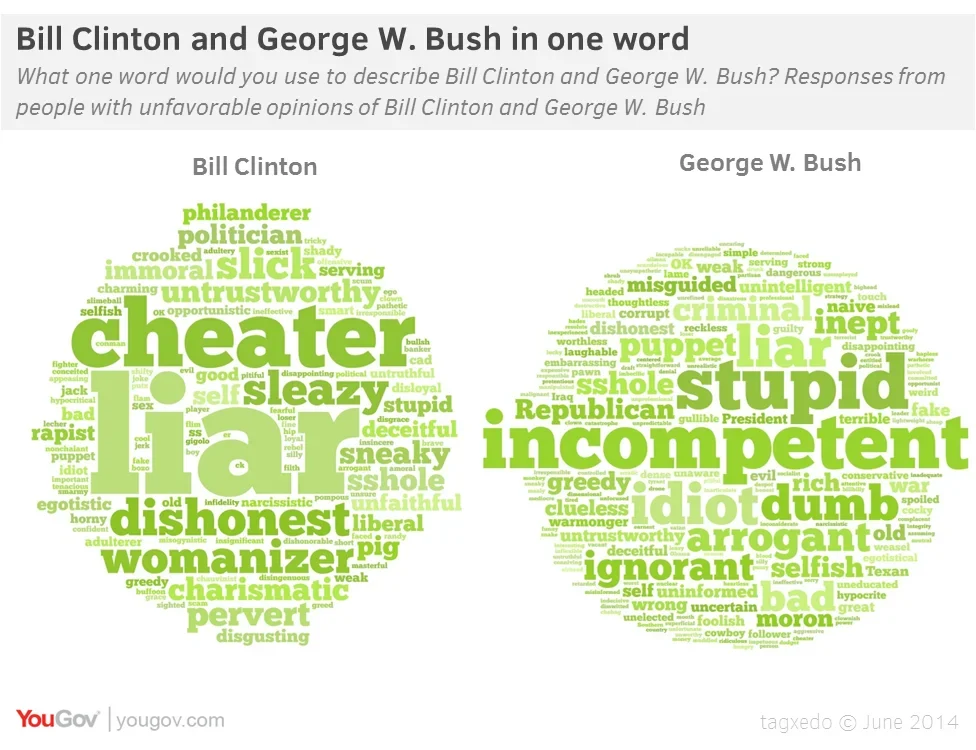Most Americans tend to look back fondly on the Clinton administration, but the same can't be said for George W. Bush's time in office
The Presidencies of Bill Clinton and George W. Bush could not have been more different. Though both were elected to their first terms with less than a majority of the popular vote (and Clinton received less than 50% yet won when he ran for a second term in 1996), the pattern of approval and disapproval changed dramatically and differently while in office.
Approval ratings for George W. Bush soared after the terrorist attacks of September 11, 2001, reaching the highest levels for any president in modern times. But he left office in the middle of a financial meltdown and an unpopular war that left his approval rating at only 22% in the CBS News Poll -- the lowest exit rating for any president.
Bill Clinton, on the other hand, faced a hostile Congress two years after his first election. He would be impeached – but not convicted – during his second term. Yet he presided over economic good times, and left office in 2001 with a 68% approval rating, matching Ronald Reagan’s high approval when he left office.
Today, Americans continue to gauge both these president differently. In the latest two Economist/YouGov Polls, 61% approve of how Bill Clinton handled his job as president. Although twice as many now approve of George W. Bush’s performance in office that did at the end of his presidency, sill less than half approve of how he handed the job.

Clinton manages to get a positive rating even from some Republicans. Today, more than a third of Republicans approve of the way Bill Clinton handled his job. Bush’s cross-party support is much lower. Only 18% of Democrats approve of Bush’s performance in office. 60% of independents retrospectively approve of Clinton’s performance in office, but more than half of independents disapprove of Bush’s performance.
Today, the personal assessments of each man are a little closer, with Clinton still on top. Somewhat fewer have a favorable overall impression of Clinton than approve of his performance in office; the favorable/unfavorable assessments of Bush are very similar to the evaluations of his performance in office.

The words Americans use to describe these two men illustrate their differences. They are liked and disliked for very different reasons. One is honest and patriotic, while the other is smart and charismatic. When the public is asked to assess Bush and Clinton in one word, positive words for Bill Clinton include “intelligent,” “charismatic” and “smart.” Those who like George W. Bush especially note that he is “patriot,” “honest” and “good.” “Strong” is associated with both men.

Negative words used to describe each man are often just the opposites of the positive words used to describe the other. The honesty that Americans who like him associate with Bush finds its opposite in the negatives those who dislike him equate with Clinton; the intelligence noted by those who like Clinton is reflected in the opposite characteristics that dominate the perception of those who dislike Bush. Clinton is castigated as a “liar” and “cheater;” while some of those who don’t like Bush also call him a “liar,” far more question his intelligence.

Those characteristics have often dominated American views of politicians, as seen in earlier Economist/YouGov performance audits: negative assessments involve honesty and abilities; strength and intelligence often are mentioned as positive characteristics. For example, last week, those who liked President Obama put intelligence at the top of their descriptor list; many of those who did not like the current President viewed him as incompetent and a liar. Former Secretary of State Hilary Clinton’s positive assessments were dominated by multiple references to her strength; a lack of honesty was her main weakness, as it also has been for so many possible 2016 candidates.
Image: Getty
Full results can be found here.
Economist/YouGov poll archives can be found here.








